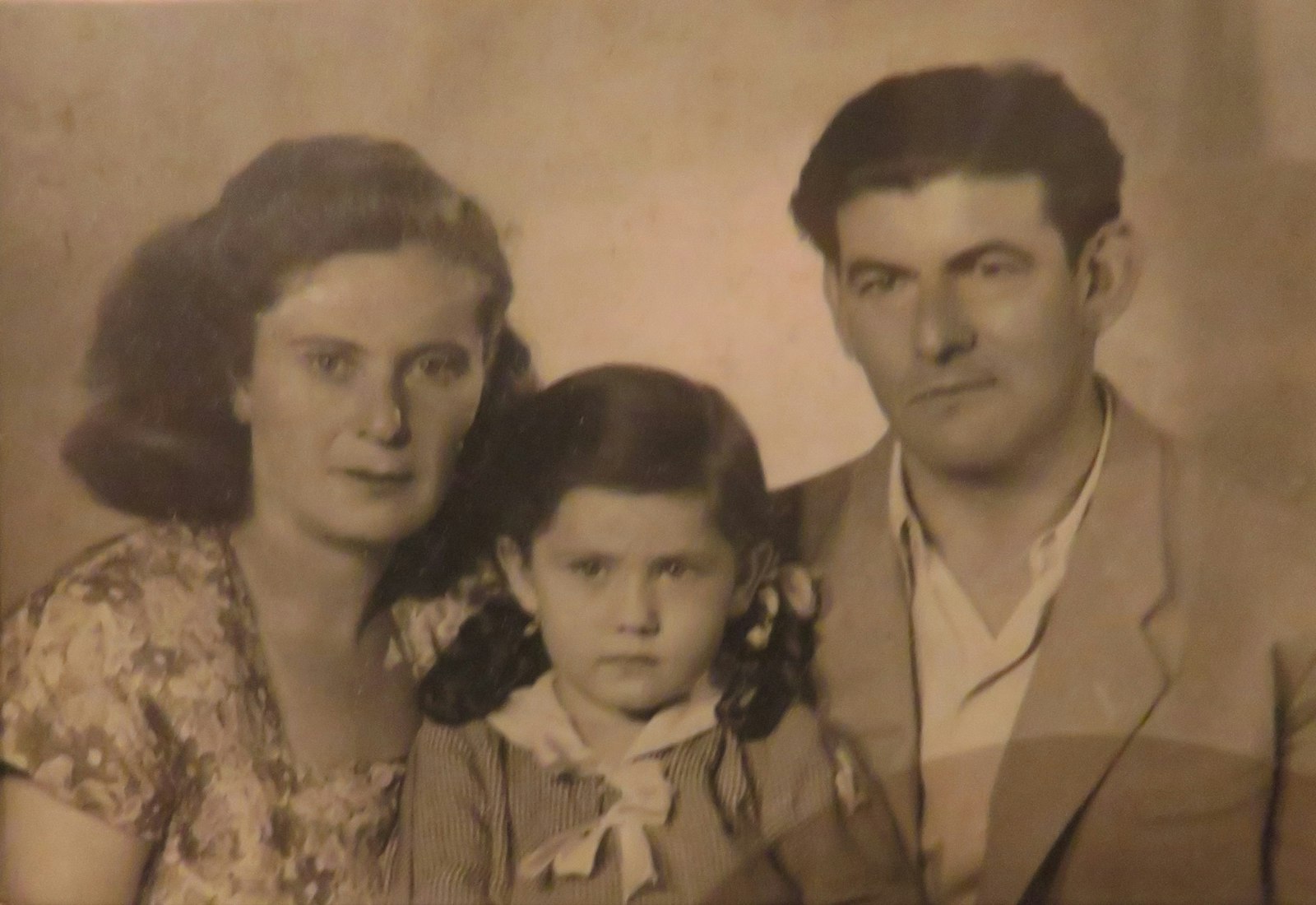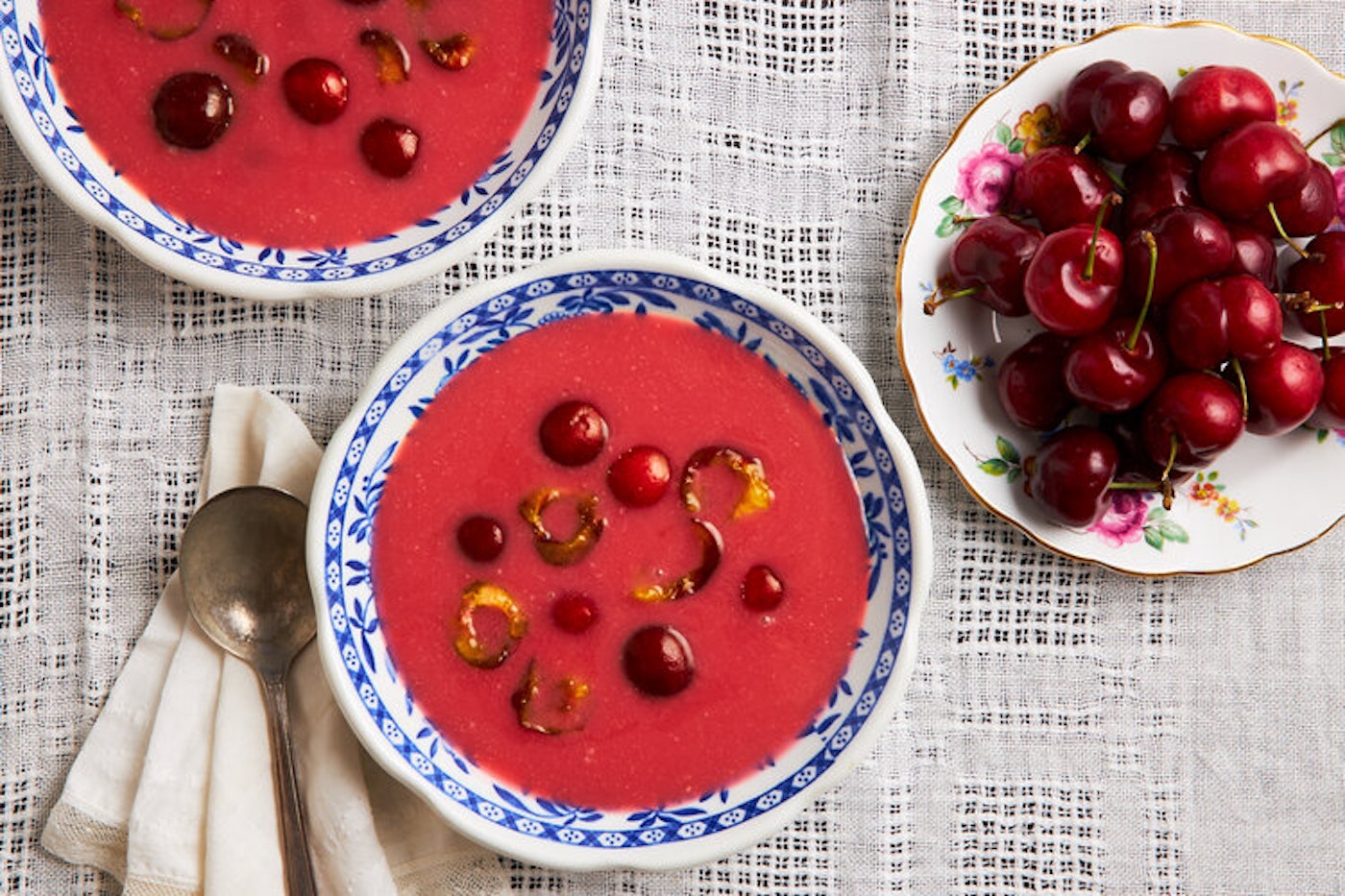Shared by Yonit Naftali


Read more about Yonit Naftali in “This Family Holds On to the Past Through Their Purim Sweets” and try his recipes for beigli (pastry log filled with poppyseeds or walnuts) and fluden (layered pastry with poppyseeds, walnuts, and apples).
When food writer Yonit Naftali was a little girl living in the Jerusalem neighborhood of Pizgat Ze’ev, the start of summer was marked with the arrival of Shavuot, a harvest holiday that commemorates the giving of the Torah at Mount Sinai. Her family would gather at her maternal grandparents’ home in Nahariya on Israel’s coastline for a meal of sweets starting with cherry soup, moving on to blintzes (or blinches as the family refers to them), and finishing with semolina and cheese dumplings dipped into wells of cocoa powder and sugar.
The dishes served during this start of summer feast trace back to the family’s roots in Transylvania, to a town called Oradea, which was formerly part of Hungary and is now located within Romania, where the family lived before and after World War II. “After the Holocaust we had nothing. There was nothing left, no one left. And, the only thing my grandma [Paula] remembered accurately is the recipes,” Yonit told us when she shared her family’s Purim sweets with us earlier this year.
Those recipes and memories came with the family to Israel in the 1960s and were handed down both orally and in written notes. Many of them are for baked goods like yeast doughnuts with brandy for Hanukkah, and a torte made with nuts and layered with chocolate ganache at Passover. All have remained unchanged, made today as they were generations ago.
As Yonit grew older, her mother Eva became a keeper of the recipes. On Shavuot, she prepared the cherry soup, blintzes, and semolina dumplings for Shavuot, hosting a special lunchtime meal during the holiday on her Jerusalem balcony. Afterwards, Yonit remembers she would join in a city tradition called Yom Hamayim, or “water day,” a day where Israel’s strict water conservation is suspended and as she explains, “everyone throws water on each other.” It was a day with no rules and lots of joy.
The Shavuot traditions in Yonit’s family are also how she found her way to a career as a food writer. When she was 23 and studying to become a philosophy professor, she applied for a position as a food writer at Mako, a large Israeli newsite. Here, she was given a copy test as part of the interview. She wrote about her family’s Shavuot traditions. “This is how my career as a food writer was launched… this became my new dream, which I still do.”
Still, when it comes to holiday cooking, she defers to Eva, who continues to host the family, explaining: “My mother is still the minister of all celebration.”
